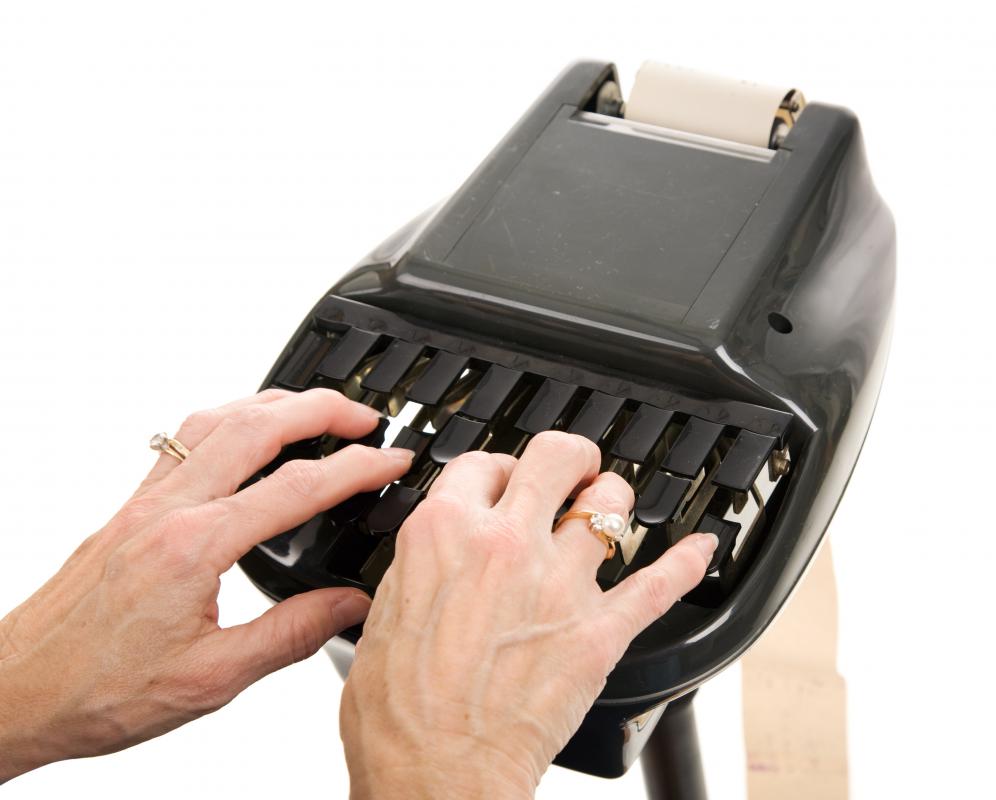At WiseGEEK, we're committed to delivering accurate, trustworthy information. Our expert-authored content is rigorously fact-checked and sourced from credible authorities. Discover how we uphold the highest standards in providing you with reliable knowledge.
How do I Become a Stenographer?
Requirements for a person who wants to become a stenographer vary, depending on the jurisdiction in which he plans to work. In most places, however, a person who wants to get a job as a stenographer completes high school or earns a general educational equivalent (GED) diploma in preparation for this field. Following high school, many interested in this career enroll in college to pursue a court reporting or stenography program. Some might even enroll in a transcription degree program in preparation for this career. In addition to community colleges, some business, trade, or vocational schools offer programs for those pursuing this field.
A stenographer has the job of transcribing proceedings for those in legal, medical, or scientific fields. People in this career use a combination of typing and shorthand skills to transcribe proceedings using a stenography machine. In this job, accuracy is critical, as proceedings and conversations must be transcribed exactly. The stenographer is usually prohibited from paraphrasing or simply summarizing what he has heard; he typically has to type very quickly as well. In fact, a person who wants to become a stenographer may need to type more than 200 words per minute.

Training to become a stenographer may start with high school. An individual interested in this job may do well to take high school classes that help him build his grammar and spelling skills. Since typing is such a major part of this job, a person who wants to work as a stenographer may do well to taking typing classes during high school as well. If he has not taken these classes or performed poorly during high school, he may find it advantageous to take typing classes through a community college or vocational school, unless they are part of his stenography training.
The coursework a person will cover in preparation to become a stenographer may vary. An aspiring stenographer will typically study legal and medical terminology, however. Often, these programs also cover common types of software used by stenographers. Additionally, a stenographer usually learns the unique steno language and how to operate a stenotype machine, which usually has 22 keys.
After training to become a stenographer, a person interested in this field may have to pass his jurisdiction’s exam. The successful test taker may then receive a license or certification. In some places, a person may need to become a notary instead, passing an exam for that instead of becoming licensed as a stenographer.
AS FEATURED ON:
AS FEATURED ON:











Discuss this Article
Post your comments